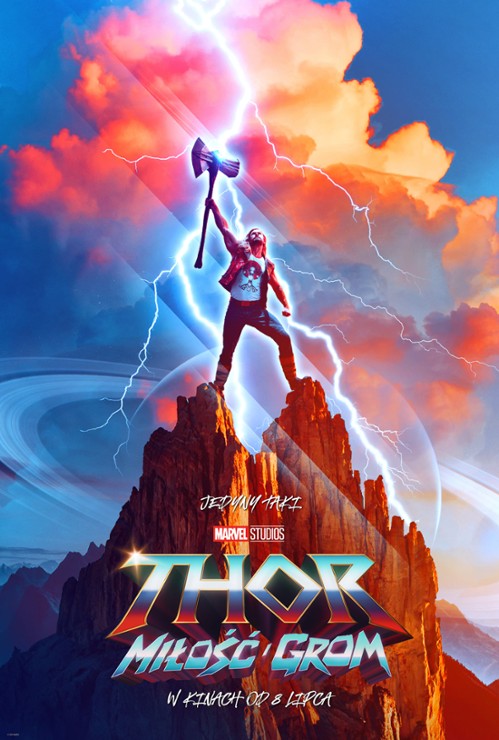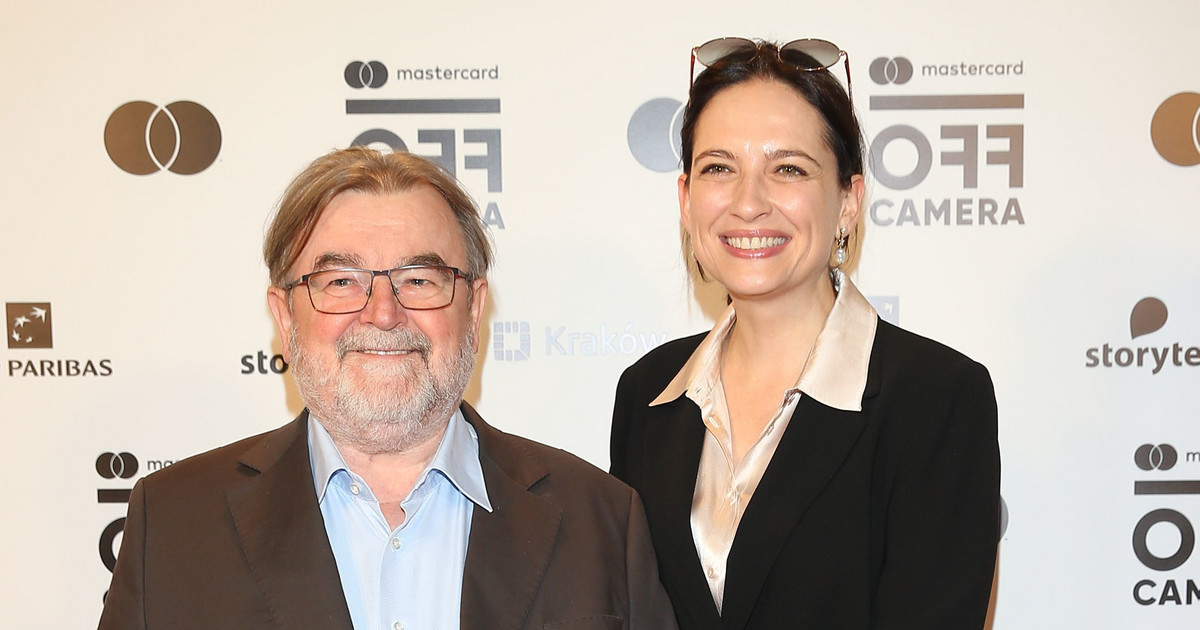So, when Taika Waititi begins his film with the scene of the solar murder of a Dionysian deity by one of his frustrated followers, an interesting reversal follows. Of course, we do not deal with theological articles in any way. The true Promethean effort by Gora (Christian Bale) to exterminate all blindly worshiped creatures in the universe, though born out of vengeance, has human underpinnings. This strange apostate is not looking for personal gain in this, but for the liberation of his fellow believers. Whether they like it or not. The first scene mentioned clearly resembles the opening of Cobol’s “Dracula”, it is a illustrative act of abandoning the faith, an almost logical decision, especially since the local deities, whose totality we see later, is almost without exception, reckless and proud reckless. Therefore, Gore’s motive is quite understandable. This makes him one of the most exciting villains in the Marvel movie universe.
The skinny Christian Bale dresses like a monk and gives him an almost vampire style, giving hideous expressions and swinging his limbs like a giant spider. But one should not be deceived by the human side of his character, which is emphasized by a thick streak of endless mourning and grief – this man is possessed by the power of the weapon he uses which deprives him of the power of rational judgment every day. Waititi says explicitly that even God can find redemption if he becomes…a human.
This, of course, is the film’s leitmotif, but that’s not where his heart beats, and more importantly is the repetition of the theme of reconstruction, both on a literal level and on a completely metaphorical, emotional and emotional level, when it comes to personal relationships. Here we have both the new Earthly Asgard, ruled by Queen Valkyrie, and Thor himself, still recovering from his fight with Thanos. Consistently attuned to genre traditions, Waititi injects horror into a romantic comedy, and can interrupt hearty laughter with a ruthless sword strike. However, he never loses sight of what the spirit of his film is. It is, of course, about the title of love. Not only between Thor and Jane Foster, who are the glue that holds the anecdotal story, but also the parenting story.
The brilliant, poignant ending proves that the film, while still burdened with the hateful dramatization that characterizes Kevin Feige’s project, is consistent and thematically coherent — even though it still performs better in detail than in general. There’s a patent here: Screaming goats playfully pulling Viking Drakkar, Russell Crowe bristly as Zeus, and Stormbreaker’s ax jealous of Mjolnir’s recompilation. Waititi may not have turned the MCU upside down, but he has satisfactorily modified the existing hair. For a long time, we were no closer to working in these rigid frames, so we are so composed that all the deviations are visible to the naked eye. Waititi’s tightness obviously annoys Waititi, but the director isn’t trying to kick the horse here—after marking mandatory plot points (I’m assuming imposed from above), he focuses on details. In them lies the true power of “Thor: Love and Thunder”.
While Guardians of the Galaxy appears as a guest here, we’re dealing with semi-independent work, separate from the rest of the MCU as possible. Well, there are even flashbacks for those who did not pay attention to past films or simply forgot what happened during the past years. However, the lion’s share of them are entirely new scenes, providing the as yet undisguised romance between Thor and Jane Foster with just the right context. The greater the pity that the heir to the power of thunder, who survived a fatal illness, is, unfortunately, an undercooked and undisguised character (also by the careless Natalie Portman). It either looks like a super machine, or as a fictional tool just meant to put the hero upright. Despite his libertarian starting point, Mighty Thor was never made a real character. Jane is better off in plain clothes, because she no longer plays the secondary role of a moral and ethical compass and has a well-written plot, on a par with Gore.
and Thor? Well, maybe he’s a little more spiritual than he was a few years ago, maybe slowly, very slowly, he’s maturing into adulthood, but the oil in his head is still a little more. It is difficult to imagine this character under the baton of another commander, a return to wedge-shaped seriousness and Shakespearean drama. Perhaps this is an indication that the world of the film is finally following the path of the comic book and will give us reinterpretations of well-known characters from time to time. Despite the dramatic weaknesses of rooting itself in the MCU, the film inspires real optimism – it proves that you can draw something original from that form. While corporate policymakers will finally allow comic book stories to be filtered by individual sensitivity to who is responsible, for better or worse.
Oh, and you definitely don’t leave before the end. Both scenes after the end — illustrated, not by accident, with a song by a man who once adopted the title of God — are exceptionally good. The first announces the imminent arrival of another important Marvel character. But it’s the last, fresh and warm, that captures the spirit of the story.

“Amateur social media maven. Pop cultureaholic. Troublemaker. Internet evangelist. Typical bacon ninja. Communicator. Zombie aficionado.”






![Yaksa: The Decisive Mission (2022) – Film Review[Netflix]. Spy action cinema without intelligence Yaksa: The Decisive Mission (2022) – Film Review[Netflix]. Spy action cinema without intelligence](https://www.moviesonline.ca/wp-content/uploads/2022/04/1650237593_Yaksa-The-Decisive-Mission-2022-Film-ReviewNetflix-Spy-action.jpg)



